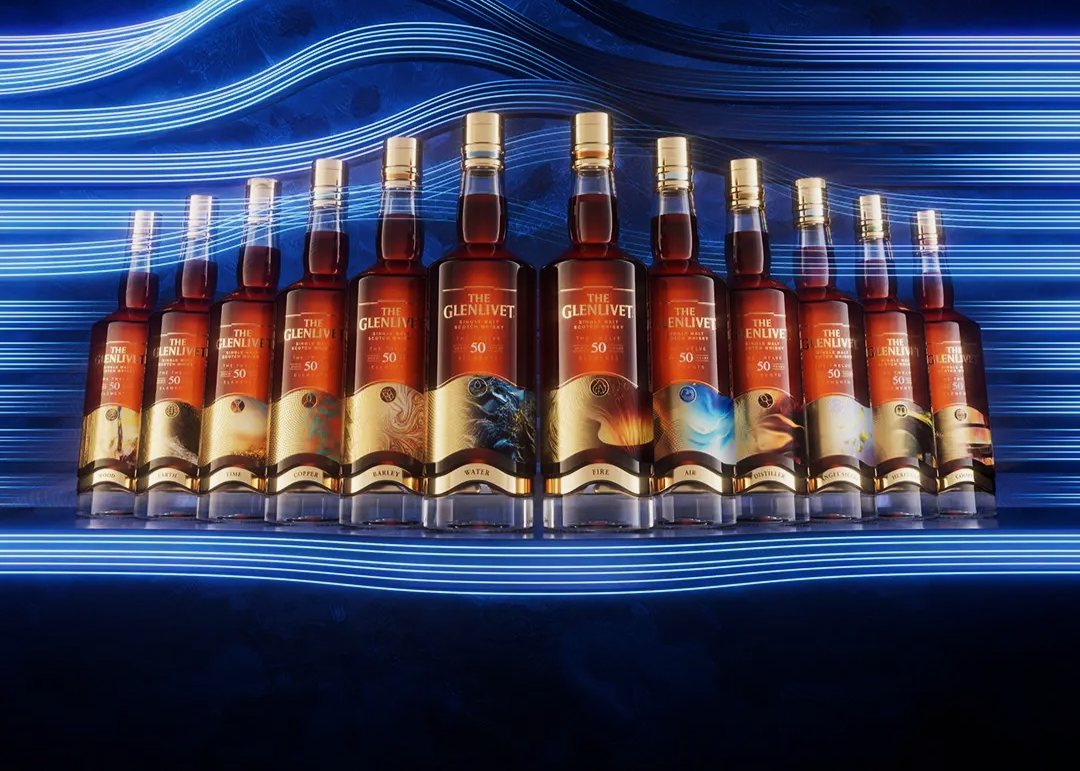Artificial Intelligence
Tech meets tradition
in single malt
The CEO of Chivas Brothers provides an exclusive insight into the industry’s embrace of technology, writes ARTHUR GOLDSTUCK.
Whisky is widely regarded as a timeless symbol of authenticity and tradition. Yet, it has embraced the digital age with remarkable enthusiasm. In an astonishing blend of the very old and the very new, for example, revered single malt brand The Glenlivet recently unveiled a 50-year-old whisky paying homage to twelve essential elements in the whisky’s craft. Twelve separate editions represent these elements, ranging from the spiritual to the scientific – with the labels generated by AI technology.
But that is just the beginning.
Jean-Etienne Gourgues, chairman and CEO of Chivas Brothers, stewards of whisky brands ranging from The Glenlivet to Chivas Regal, said in an exclusive interview during a visit to South Africa last week that the dynamic interplay between age-old craftsmanship with cutting-edge technology was helping to revitalise the whisky industry.
However, the key factor driving the resurgence of interest in single malt whisky in the past two decades, he said, was its inherent authenticity.
“People like authentic stories, and whisky, by nature, is extremely authentic. But research has also shown that whisky drinkers are curious; they enjoy trying new things.”
The digital revolution has further amplified this diversity through innovative technologies such as blockchain and NFTs (non-fungible tokens). Chivas Brothers has pioneered the use of NFTs for whisky traceability, ensuring that each bottle’s journey is meticulously documented.
“Each bottle can interact with consumers actively, telling the story of the whisky and the bottle itself.”
The first NFT “drop” – when a new batch of NFTs are made available for bidding – in the whisky world sold out in seven seconds. The buyers were typically tech-savvy under-30, from around the world. This, said Gourgues, demonstrated the deep interest in this fusion of tradition and technology.
Chivas Brothers has also taken a lead in the “tokenisation” of casks, referring to the process of representing sensitive or valuable objects or data with a non-sensitive substitute, called a token.
“You can tokenise a cask, giving access to high-end whiskies that would otherwise be out of reach. This allows consumers to purchase shares of a cask, making rare whiskies more accessible.”
This “democratisation of whisky ownership” aligns with the industry’s goal of recruiting new consumers and expanding its global footprint.
Technology has not left operational efficiency behind either. The use of robotics in cask handling, developed in collaboration with German industrial robot company Kuka, has revolutionised the warehousing process.
“We are the first in the industry to implement robotised cask handling, increasing productivity and safety. This has also increased diversity in the workforce by making this labour-intensive process more accessible to anyone.”
The impact of technological advancements is particularly pronounced in emerging markets. In China, for example, the integration of e-commerce and social media has revolutionised how whisky is marketed and sold.
Some aspects of whisky tradition, however, remain sacrosanct.
“There is one area where technology will not penetrate, which is the blending room,” said Gourgues. The intricate art of blending whisky relies on the nuanced expertise of master blenders, a craft that remains beyond the reach of AI.
In South Africa, where whisky is immensely popular, he said, the trend toward “premiumisation” was well under way. The rise of premium whisky clubs and specialised retailers like Whisky Brother highlights a growing trend towards connoisseurship.
These establishments are not just places to purchase whisky, but hubs for education and community engagement. This focus on quality over quantity reflects a broader shift in consumer behaviour, where the appreciation of craftsmanship and heritage takes precedence.
“Whisky is big in South Africa, and the demand for aged whiskies is growing,” said Gourgues. “This shift towards higher-quality, responsibly consumed whisky aligns with the global trend of drinking less but better.
“We don’t want people to drink more; we want them to drink better.”
• Arthur Goldstuck is CEO of World Wide Worx and editor-in-chief of Gadget.co.za. Follow him on social media on @art2gee.


















